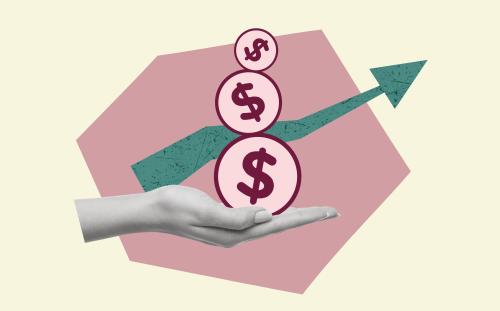On January 20 President Bush promised that America would “help others find their own voice, attain their own freedom and make their own way.” His inspiring words in praise of “liberty” invoked the bedrock principles, if not always the practice, of our great nation. More practically, democratization of the Arab world and beyond would have major strategic benefits for the United States.
Soon after that inaugural address, the president submitted his budget for the coming fiscal year. Unfortunately, it does not begin to match either his dream or the country’s long-term security requirements.
In a budget that slashed many programs, the president proposed a 14 percent increase in international assistance and an 18 percent increase for State Department operations. These funds are badly needed and are important to our national security. Yet the president plans to direct little of this additional spending to global democracy programs.
For his flagship Middle East Partnership Initiative, which is meant to seed freedom in the critically important Arab world, Bush requested $30 million less for the coming fiscal year than he sought last year.
For the National Endowment for Democracy (NED), which provides grants to build civil society and to promote a free press, human rights and the rule of law, he requested the same amount—$80 million—as he did last year. Since the Republican-controlled Congress underfunded the president’s fiscal 2005 request for these two programs, this year’s request, if fully funded, would mark spending increases over last year but certainly no visionary leap forward.
The president does propose to make a first-time $10 million contribution to the United Nations’ democracy fund. But he would cut both the U.S. Agency for International Development’s global democracy account and the State Department’s global human rights and democracy fund. His budget also zeroes out regional democracy funds for Africa, Asia and the Middle East that were channeled through the NED. In total, the proposed cuts in these three accounts amount to $32.7 million.
This is hardly the stuff of the “transformational diplomacy” that Secretary of State Condoleezza Rice promised in her confirmation hearing, or “the concentrated work of generations” to which the president committed us. Perhaps that’s why Bush later let it be known that his inaugural address represented his vision of “an ideal world,” not new U.S. policy.
But surely he was offering more than empty rhetoric when he said that “it is the policy of the United States to seek and support the growth of democratic movements and institutions in every nation and culture, with the ultimate goal of ending tyranny in our world.” So what is the president’s strategy for implementing this freedom doctrine?
He conceded in his inaugural address that it is “not primarily the task of arms.” That’s good, since we have about 150,000 U.S. troops overstretched in Iraq and President Bush remains committed to obligations there that he says would be “dishonorable to abandon.” As a practical matter, we currently have no viable military options to overthrow repressive regimes in such places as Iran or North Korea, even if that were a wise thing to do.
If not force, then how to unseat tyranny? Unilateral sanctions may have moral merit, but experience with Cuba, North Korea, Iran, Syria and Sudan has shown that they do not change regimes. Multilateral sanctions sometimes work, but the Europeans, not to mention the United Nations, surely will not join the president on his freedom crusade.
There is one practical way the president could start to turn his vision of liberty for all into eventual reality: by making long-term, global investments in the unglamorous but essential work of grass-roots democracy-building. This is how, on a much smaller scale, this country helped democracy triumph in Ukraine, South Africa and the Philippines.
The president should have proposed a historic increase in funding for democracy promotion programs — a next-generation Marshall Plan to build civil society, political parties and durable democratic institutions around the world. Instead, his spending plan is a far cry even from a respectable down payment on his vision of an “ideal world.” When it comes to advancing “human freedom,” the president’s budget reveals that he is conducting business as usual.
The Brookings Institution is committed to quality, independence, and impact.
We are supported by a diverse array of funders. In line with our values and policies, each Brookings publication represents the sole views of its author(s).



Commentary
Op-edPromoting Democracy: Money Talks
February 21, 2005